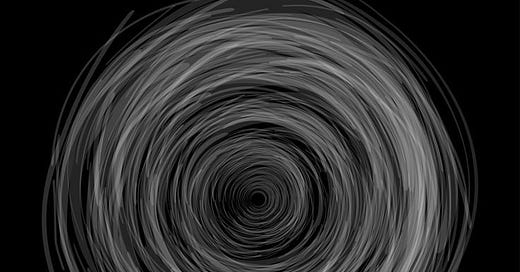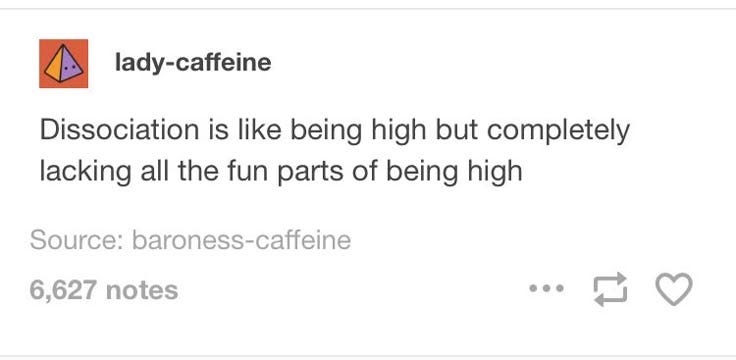There are days I feel less like a person and more like a system error. Not a crash, not a blue screen of death, but that quiet, looping glitch where things technically work but nothing really functions. That’s the state of my brain lately: tabs open everywhere, voices playing from nowhere, and the cursor blinking like it's waiting for me to catch up with my own thoughts. Welcome to the scroll era. Welcome to digital overwhelm.
001. the tab-hoarder brain
We don’t just open tabs on our browsers anymore—we open tabs in our heads. That article I meant to read, that conversation I need to reply to, that project I swore I’d start, that friend I owe a voice note to. Mental multitasking has become a default mode, but not because we’re wired for it. Because we’re drowning in stimulus.
A 2023 study from the University of California Irvine found that the average knowledge worker switches tasks about every three minutes. Three. Minutes. That’s not even enough time to make a cup of coffee, let alone finish a thought. Each switch comes with a cognitive cost—a reboot, a buffer, a recalibration. But our brains aren’t CPUs. They're soft, messy, deeply human machines.
I think of it like this: Every tab you open is a doorway to something. But when every door is cracked open, and wind is blowing from all directions, what you get is not air circulation—you get a storm.
And storms demand attention. They crash through the stillness and scream for resolution. But the thing about too many storms is you forget which one started first. You lose the thread of your own thoughts, mid-sentence, mid-feeling, mid-life. We're not living our days anymore, we're buffering through them, stuck between intention and inertia.
We’re so used to managing ten thoughts at once that silence feels suspicious. It’s like we’ve forgotten how to just be present in a single moment. That’s not because we’re weak-willed or lazy. It’s because we’ve been conditioned to associate stillness with failure. As if not doing something—anything—means we are wasting the precious currency of our attention.
002. glitching is the new coping
One of the frozen tabs is always something I forgot. The text I never responded to. The assignment I procrastinated. The emotional processing I shoved under the rug because it didn’t fit in my Google Calendar. These tabs don’t just sit there. They haunt. They drain RAM I didn’t know I had.
They manifest as that tightness in your chest at 2 a.m., that brain fog mid-conversation, that vague shame you can't quite trace but always carry. We are glitching not because we're failing but because our systems are overwhelmed—with information, with expectation, with noise.
And then there’s that one rogue tab, playing music I can’t identify. A feeling, maybe. A past version of myself, looping a thought from 2019. A tweet I read last week that embedded itself into my limbic system. That music is the hum of overstimulation, the song of being permanently online.
It's the phantom buzz of a phone that didn’t vibrate. The flicker of memory that feels like an open notification. Our thoughts are being hijacked by echoes.
This strange background noise has become our new white noise. It’s anxiety disguised as ambient sound. And it’s addictive. Like listening to static and convincing yourself it's symphony.
We call it burnout. We call it attention fatigue. But more than that, it’s a spiritual clutter. A soul-level noise. It leaves us longing for a stillness we've forgotten how to access, a silence that doesn't come with guilt.
003. you’re not distracted. you’re dismembered.
We keep trying to fix our attention as if it’s a broken machine. But maybe the problem isn’t us. Maybe it’s the system we’re operating in. Tech platforms are engineered for stickiness. The infinite scroll is not just a feature. It’s a trap. A slot machine built with algorithms instead of levers.
Tristan Harris, a former Google design ethicist, famously described tech companies as playing chess against your mind—and they know your every weakness. Notifications aren’t neutral. Algorithms don’t just show you what you like; they show you what keeps you hooked, outraged, or doomscrolling.
This means our thoughts are no longer entirely ours. Our impulses have been monetized. Our emotions, commodified. Every time we log in, we’re stepping into an environment built to make us stay, consume, click, scroll. We are not just users. We are data.
So no, your attention span didn’t just get shorter because you lack discipline. It got auctioned.
And this isn’t just digital hygiene. This is about agency. Because every time we’re nudged into distraction, we’re pulled further from ourselves. We’re chopped into fragments, handed back to ourselves pixel by pixel, until we barely recognize the whole.
004. doomscrolling and dissociation: a duet
You know that feeling when you wake up and reach for your phone before your feet touch the ground? When your body is here but your brain is five reels deep into someone else’s vacation, breakup, skincare routine, trauma dump?
We don’t just scroll anymore. We dislocate. We leave our lives to inhabit pixels. We trade our lived experience for a simulacrum of someone else's highlight reel.
Clinical psychologist Dr. Mary Anne Layden calls this the "dissociative loop," where scrolling becomes a way to exit reality. It soothes the brain but numbs the self. Like candy for the mind: sweet, quick, and not particularly nourishing.
We numb instead of process. Distract instead of reflect. Escape instead of engage. And the more we do this, the harder it becomes to return to the messy, tactile world of reality.
This is how emotional depth erodes: not in one tragic moment, but in millions of micro-skims. A life diluted into fragments. And the worst part? We crave this dissociation. It feels like a balm. But it's a balm that slowly sands away the parts of us capable of deep presence, real intimacy, full feeling.
005. the illusion of being everywhere
We are the first generation to be always on. And we wear it like a badge. Available. Reachable. Online. But this omnipresence is not freedom. It’s fragmentation. The cost of connection is coherence.
We think we're being productive, plugged in, connected. But half the time we’re just clicking back and forth between our own distractions, half-reading things we won't remember, liking posts we don’t care about, replying to messages with the emotional depth of a status update.
This isn't multitasking. This is micro-failing, repeatedly, at being present.
And it’s exhausting. The emotional tax of maintaining multiple versions of yourself across platforms is rarely acknowledged. We don’t just keep tabs open for our tasks, but for our identities. Work me. Fun me. Soft girl me. Thoughtful intellectual me. Family me. Online me. And the pressure to maintain all of them, in harmony, is impossible.
We are fractured avatars of ourselves, struggling to keep every part of us updated and presentable, hoping no one notices the glitches.
006. attention is identity
What we pay attention to becomes our life. If you're constantly pulled in a hundred directions, it's not just your time you're losing. It's your self.
When I’m on hour three of accidental scrolling, I don’t just feel unproductive. I feel hollowed out. As if someone took a spoon to my brain and scooped out the best parts. Like I left my soul somewhere between Instagram stories and a YouTube video essay.
Attention is sacred. In many spiritual traditions, it’s synonymous with prayer. What we attend to, we worship.
And lately, we’ve been worshipping the feed.
The deepest parts of us need slowness. Need quiet. But we’re told that rest is wasteful, and silence is awkward, and boredom is dangerous. So we fill every gap with noise and call it content.
But content without context is just noise. And noise, left unchecked, becomes chaos. We need friction. We need slowness. We need to remember how to feel one thing at a time.
007. rebooting the self
So what now? A digital detox? A dumb phone? Unsubscribing from everything and moving to a cabin in the woods?
Honestly, maybe. Or maybe we just start by closing one tab.
One lingering task we’ve been avoiding. One conversation we need to have. One app we need to uninstall. One long walk without a podcast.
We can reclaim ourselves incrementally. Not with grand declarations but with tiny refusals.
Start by scheduling solitude. Not just breaks from work, but breaks from consumption. Let your thoughts marinate without interruption. Let ideas stretch out, grow legs, take shape.
Write by hand. Stare at the sky. Let your brain breathe. Let your boredom be fertile. Let it birth a version of you that doesn’t need constant stimulation to feel alive.
008. let your mind buffer
I’m trying to let my mind buffer more often. To stare out the window and let thoughts come in like clouds, without trying to hold them all. To let some tabs expire on their own. To not know everything, read everything, be everything all the time.
I’m learning that clarity comes not from more information, but from fewer interruptions. That the deepest insights emerge from silence. That my brain, like any beautiful system, deserves rest.
Sometimes, the best thing you can do is hit CTRL+W on the chaos.
Because your brain is not a browser.
Because you are not a machine.
Because maybe that music playing somewhere in the background is your own heartbeat, reminding you to come back to yourself.
And maybe that’s enough for today.
written in a room with too many tabs open. ironically.
— Mukta







